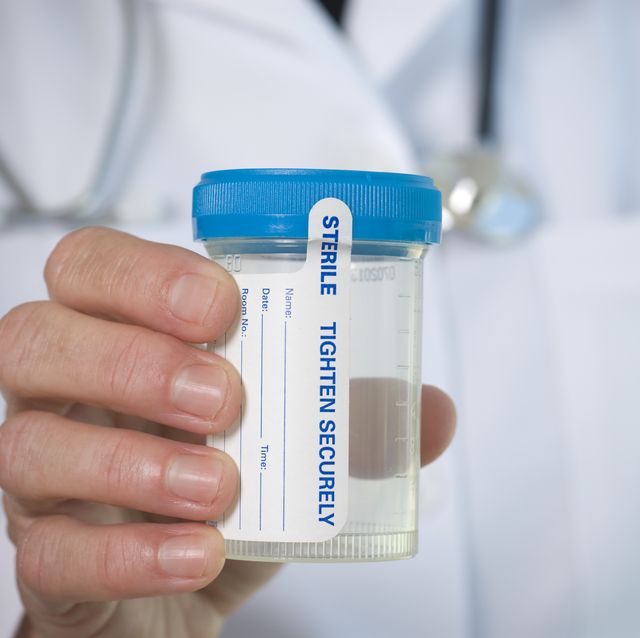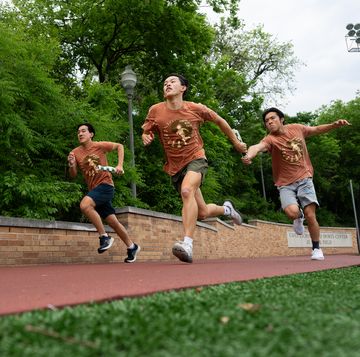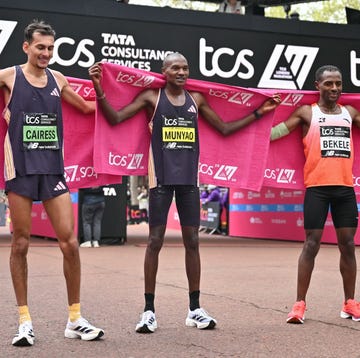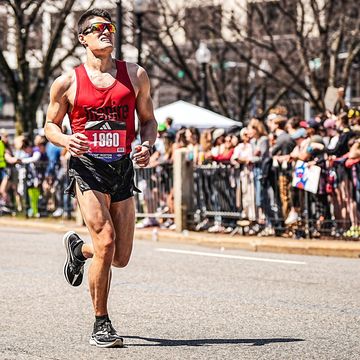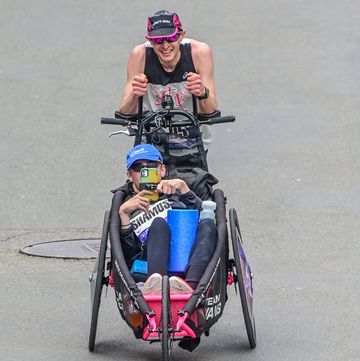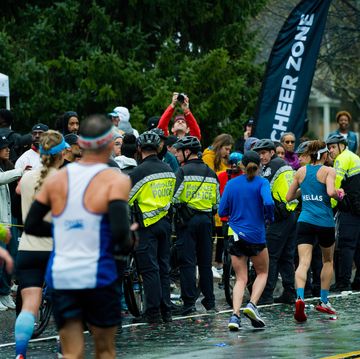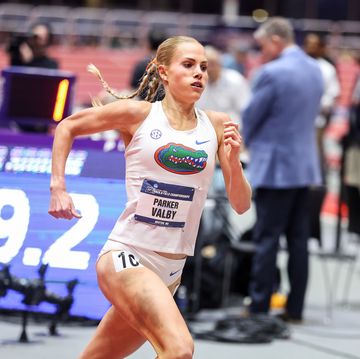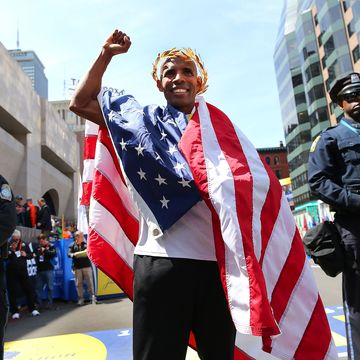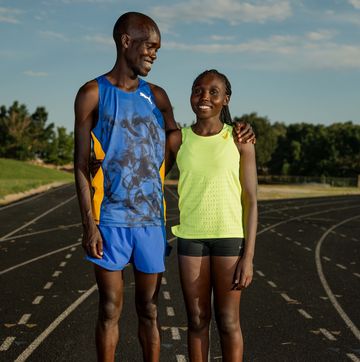Drug testing in professional running has made plenty of headlines over the years—even as the process itself has remained somewhat mysterious to spectators of the sport. But on this week’s episode of Nobody Asked Us, Des Linden and Kara Goucher pulled back the curtain and offered a rare peek inside anti-doping practices, including the scoop on “whereabouts” policy.
Linden began the conversation by recalling that she’d been drug tested in the early morning of the previous weekend. “We could demystify the process because I think… people don’t hear too much about it except as just a quick tweet or [via] somebody who hasn’t really been through it or has a story that is uninformed because they heard it from someone who heard it from someone,” said Linden. “We’ve been through this a number of times so I thought we could talk about the process a little bit.”
According to the World Anti-Doping Agency, athletes who are part of the Registered Testing Pool (those operating at the highest level of their sport) must submit to regular drug testing year-round. To accommodate the testing, these athletes must offer up their home address (or address for their overnight accommodations), competition schedules, and any alternative locations where they may be found. They also must provide a 60-minute time slot for each day where they will be available for testing.
“You have one hour where they will not inform you that you’re there or that they’re looking for you. They will just knock and you have to be where you put your whereabouts for the day,” said Linden. The WADA stipulates that those who miss the test may be liable for, you guessed it, a ‘missed test,’ and infraction that can lead to bans.
Linden shared that her hour window is first thing in the morning when she knows she’ll have to pee. “Five to six a.m. is my hour window usually at home, and then they wake me up and I have to go to the bathroom right away,” she said. Goucher shared that she also opted for a morning slot for drug testing until her son was born. “After I had Colt, I did change it to the afternoon—just because there were many a time where he got woken up… so I did change it to like two because I was always home by then and just napping or playing with him,” she shared.
The WADA also reserves the right to test athletes directly post-race. Goucher and Linden said this process often involves waiting around after you’ve crossed the finish line until you have to go. In this case, drug testers follow athletes into the bathroom. The process can be awkward—especially if it’s a numbers one and two kind of situation. “They’re like tuck your shirt up into your bra and pull your pants down, I’m going to watch,” explained Kara. “At first it feels weird, but later in life you’re like ‘Pfff, whatever. Here we go.’”
Once, athletes had to fax their schedules to the governing bodies for drug testing, according to Linden and Goucher. But nowadays, the test scheduling happens via an app. “If you’re in a certain pool… then you have to put in one hour where you’re going to be and they can’t inform you,” said Linden. “And then you have the rest of the day where you sort of give them an idea of where you are and how they can get a hold of you.” They may choose to test runners outside their chosen hour; however, they must work with the athlete to find a location that works, per the two runners’ conversation. Goucher said that a drug tester once met her at a preschool orientation, for example.
“[The calendar] is really easy to change if your life changes. It’s not like you’re married to the calendar or anything,” said Goucher. “You have up to one minute prior,” agreed Linden, adding that she updated it last minute on a recent vacation. “It’s not impossible, and for me, what I get frustrated with is that this should be a priority in your life,” said Goucher. “This is what you do for a living. You’re trying to achieve all your goals.”
Linden and Goucher also shared personal stories about their testing experience, so make sure to check out the full episode.
Kells McPhillips is a health and wellness journalist living in Los Angeles. Her work has appeared in Runner's World, The New York Times, Well+Good, Fortune, Shape, and others.
